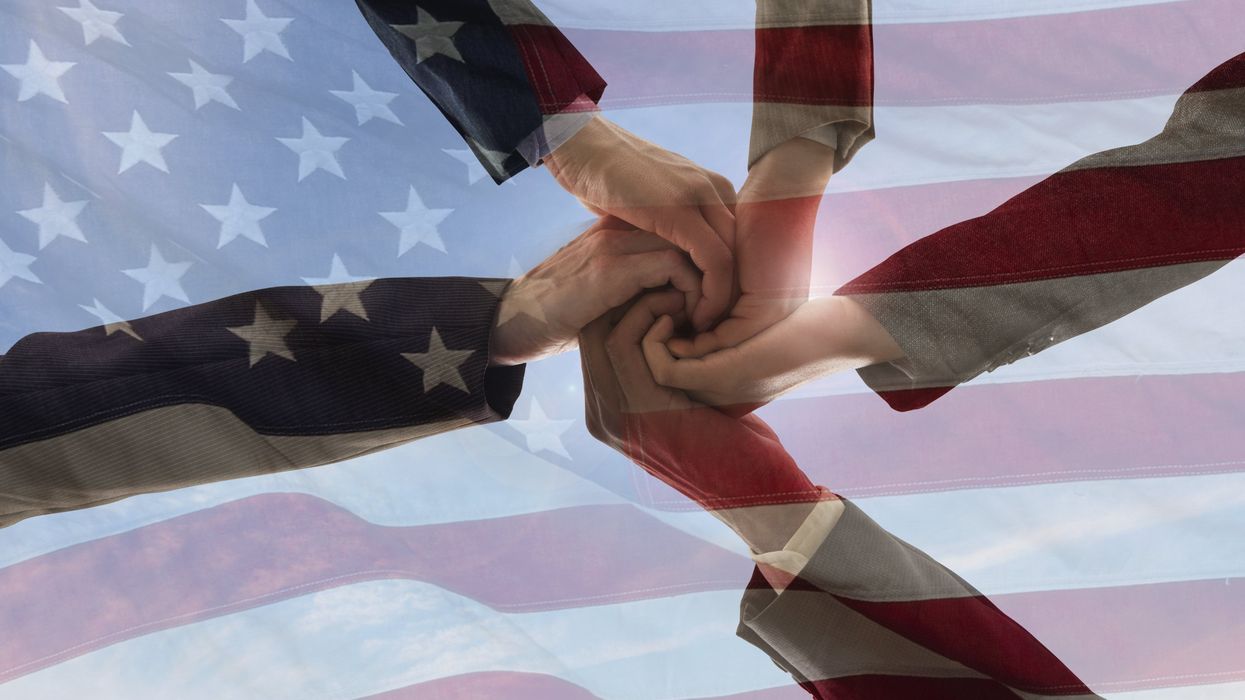This year's electoral rhetoric exposed the deep fissures in our body politic, leaving many feeling disillusioned and even fractured. In this moment of potential discord, people of faith have a profound opportunity to model a different path forward — one anchored in the timeless principles of civility, justice and a fierce commitment to our nation's highest ideals.
In all their glorious diversity, many religious traditions share a common bedrock: the inherent worth and dignity of every human being, created in the image of the Divine. This sacred truth must be the north star guiding interactions, especially with those we disagree with. Civility isn't about avoiding the tough conversations or pretending our differences don't exist. It's about engaging in those conversations with respect, empathy, and an open heart and mind. It's about recognizing that our political opponents aren't our enemies but fellow travelers on this Earth, deserving of our compassion and understanding.
But make no mistake, my friends, civility is only the first step. Justice is the backbone of any truly moral society and demands our unwavering commitment. The Hebrew prophets railed against injustice, Jesus lifted the marginalized and Muhammad taught that true belief compels us to desire for others what we want for ourselves. These aren't dusty relics of the past; they're a blazing call to action in the present.
In a post-election America where many feel their voices have been silenced or their rights threatened, people of faith ought to model righteousness. People of faith are expected to advocate for policies that promote equity, accessibility and the common good. An imperative of major faith expressions is to stand in solidarity with the vulnerable, poor and estranged. Remember that justice isn't a zero-sum game, where one person's gain requires another's loss —and creating a world where all can flourish, as the prophets envisioned.
Yet justice, even paired with civility, still needs a shared commitment to the nation's social contract. A contract, enshrined in our founding documents, is a sacred trust between generations — an agreement to uphold the principles of liberty, democracy and the rule of law. It is the glue that binds us together as one people, “E pluribus unum,” even as we celebrate our differences.
In the aftermath of an election, this contract is tested. It is easy to feel tempted to retreat into our respective corners and question the legitimacy of those who disagree with us. However, people of faith are bound by different ethics. Accountable to a higher call and standard. A model committed to upholding the social contract, even when it's hard. We must engage in the political process with integrity and respect the outcomes even as we continue to advocate for our values. We are reminding ourselves and others that a single election doesn't define our national identity but our enduring ideals.
That is why all are invited to pray. Pray for the grace of civility. Pray for the courage to pursue justice for the vulnerable and champion the marginalized. Pray that we may remain one people united by our shared commitment to liberty, democracy, and the rule of law. In the aftermath of this election, let us not be a force for further division but a balm to the nation's wounds. For in doing so, we may help bring about the beloved community that has always been America's promise — a community where all can thrive, where justice rolls down like a mighty stream, and where every person, regardless of their beliefs or background, is treated with the dignity and respect they deserve as children of God.
Johnson is a United Methodist pastor, the author of "Holding Up Your Corner: Talking About Race in Your Community" and program director for the Bridge Alliance, which houses The Fulcrum.




















